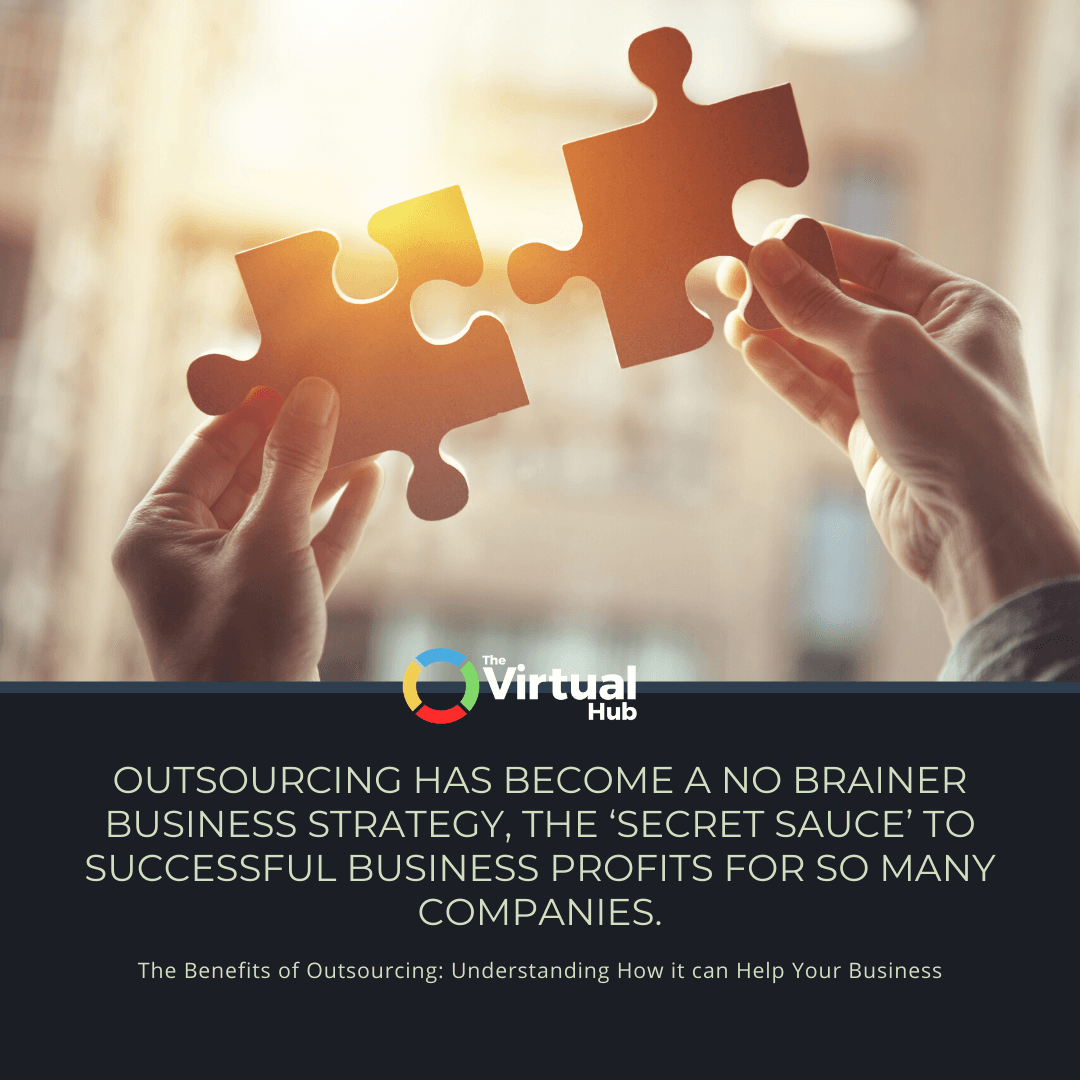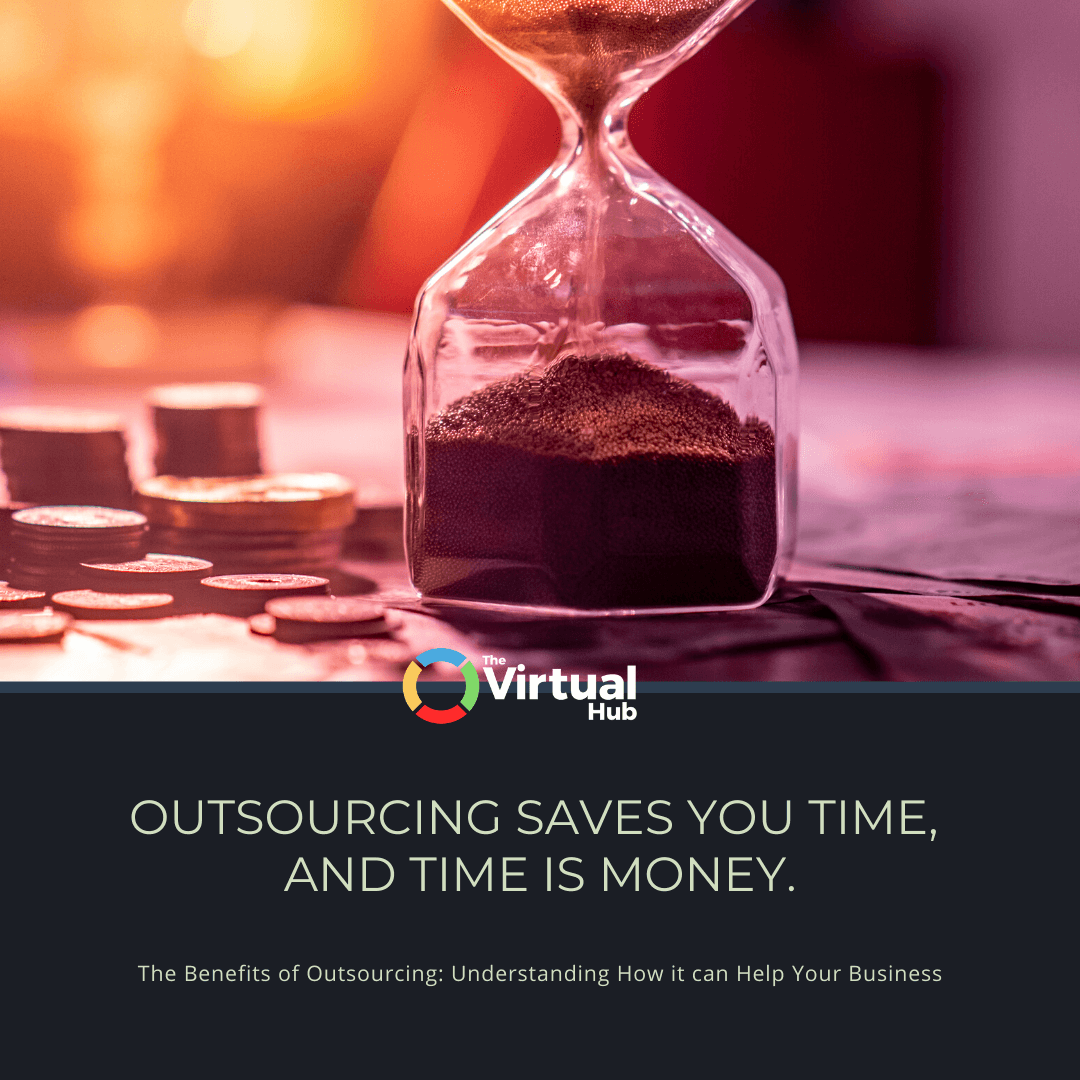When it comes to business, there are a lot of factors that go into making it successful. You need the right team in place, a strategy that works, and the drive to make your vision a reality.
But one thing that is often overlooked is how you manage your resources. Do you have the time and energy to do everything on your own? Or would it make more sense to outsource some of those tasks?
Here are six benefits of outsourcing that can help you decide if it’s the right move for your business.
RELATED: Entrepreneurs: It's Time To Stop "Doing" And Start To Delegate Effectively
Understanding Outsourcing and Its benefits
You can click on these links below to jump on a specific section:
What Is Outsourcing?
Generally speaking, "outsourcing" involves hiring a third party, a "non-employee" if you will, to perform certain business functions. This third party can be an individual or another company and can be totally arms length from your business (pure outsourcing services) or more integrated with your business and internal team.
For example, clients of The Virtual Hub hire our company as a third party that integrates our virtual assistants into their businesses to run various digital marketing and operational business processes and administrative tasks.
It's something that's been around forever but only became a recognized "thing" in the late 1980s, when major corporations began outsourcing their IT systems.
It has become a no brainer business strategy, the "secret sauce" to successful business profits for so many companies. There are many advantages of outsourcing. It’s a strategy that’s been silently fueling growth around the world and is only gathering more pace, notoriety, and momentum.

Who Outsources Their Business Functions?
Everyone! In fact, you're more than likely outsourcing, whether you realize it or not.
Many people don't recognize all forms of outsourcing because of those misperceptions around it.
For example, it's often associated with huge companies, with massive budgets, that can afford to sign long-term outsourcing contracts for tens or even hundreds of thousands of dollars. But they are not the only ones capitalizing on it. Most solopreneurs who haven't yet built a team for their business are outsourcing something.
You're already outsourcing if you:
- Hired a freelancer or digital agency to create your website.
- Invested in an expert logo designer to create your company's branding/logo.
- Pay someone else to do your bookkeeping or tax prep.
- Have worked with a copywriter to create content for your sales page.
- Hired a virtual assistant or VA company to help with business processes.
No matter how much a new entrepreneur is bootstrapping, no one can do everything on their own! Nearly everyone is outsourcing something, even if their business is brand new.

What Can Be Outsourced?
Although just about anything can be outsourced these days, outsourcing is most effective when it's done strategically, through hiring subcontractors to execute non-primary, non-revenue-generating functions.
Also, both product- and service-related functions can be outsourced to third parties. So, let's take a look at the different possibilities for outsourcing.
So, let's take a look at the different possibilities for outsourcing.
Types of Outsourcing
Depending upon where you look, you'll find different ways to categorize the types of outsourcing. But the two major ways to break down outsourcing are by process function and by location.

Outsourcing Categories Based upon Type of Product or Service
For example, some sources identify four types of outsourcing:
- Professional Outsourcing (e.g., a lawyer or an accountant)
- IT Outsourcing (e.g., an app developer)
- Manufacturing Outsourcing (e.g., a factory in a foreign country)
- Project Outsourcing (e.g., a website designer)
Another perspective breaks outsourcing down into the following process categories:
Business Process Outsourcing (BPO)
Business process outsourcing pertains to hiring a third party to take responsibility for the operations of a specific business process. It breaks down further into back-office and front-office functions.
Back-Office Operations: These functions are essential to running the business but aren't seen by the customers. Back-office functions include accounting, HR, and planning. For online entrepreneurs, tasks like social media automation, project management, and website maintenance are back-office processes that are commonly outsourced.
Front-Office Operations: Anything the business' customers experience directly, such as sales, customer service, and service or product delivery, falls into front-office operations. Managing emails and phone calls would be among the front-office tasks that virtual businesses often outsource
Knowledge Process Outsourcing (KPO)
KPO involves hiring an outsourcing partner to handle all of the research and analysis for a business. This can include everything from market research to financial analysis.
KPO is often seen as a more specialized form of outsourcing, as it requires a high level of expertise. As such, KPO providers typically have deep knowledge in a particular subject area.
Information Technology Outsourcing (ITO)
ITO is the process of contracting out the management and execution of IT-related services to an outsourcing partner. IT outsourcing is often used by organizations that lack the internal resources or expertise to handle certain IT functions.
One of the most common types of IT outsourcing is application management, which involves contracting out the development, maintenance, and support of software applications. Other common types of ITO include data center management, desktop support, and network administration.

Outsourcing Categories Based upon the Location of the Third Party
Another way to break down outsourcing is to divide it into categories based on whether or not the third party is in the same or another country. These categories are what we call onshore, nearshore, and offshore outsourcing.
- Onshore Outsourcing: This refers to outsourcing to a third party located within the same country as your business.
- Nearshore Outsourcing: This is outsourcing to a third party in a bordering or otherwise neighboring country.
- Offshore Outsourcing: This means outsourcing to a third party in a far away country, typically one on another continent. When the term "offshore outsourcing" is used, it usually refers to Western countries outsourcing to companies in Asia or South America. However, a U.S. company working with a contractor in the U.K. is also, technically, offshoring.
RELATED: What Is A Virtual Assistant? Know When You're Ready To Hire
What Are the Long Term Benefits of Outsourcing Services?
Here's where we're going to get into the details about the advantages of outsourcing and how it's pretty much essential to business growth.
So, why are so many businesses outsourcing select business functions? Oh, let us count the ways!
Outsourcing Saves You Time
As we've discussed elsewhere, you can't do everything in your business forever. At least not if you expect to grow! At some point, you need to start delegating effectively to other people so you can free up your time and energy to focus on growing the business.
Delegation involves bringing other people in to help, and this can be costly when it comes to hiring and managing employees. Outsourcing, either onshore, nearshore, or offshore, can be a really effective way to get over this hiring roadblock that stops so many business’ growth plans. You hire someone to do "their thing," you gain more time to do "your thing," and those tedious tasks that aren't your thing get done quickly and effectively.
Outsourcing Saves You Money
One way to look at the cost saving offered by outsourcing is to compare it to fixed costs, labor costs, and the costs of investing in training in order to perform every function and step by step process within your company.

Employees require benefits, office space, equipment, and training to perform daily tasks within your business. Going outside your company to utilize someone who already has the equipment and expertise (and for whom you don't have to provide benefits) can help you save costs.
Remember too that certain types of outsourcing give you the look and feel of having remote workers without all the employee headaches and expenses. At The Virtual Hub we integrate our virtual assistants into our clients businesses so they look and feel like an employee in those businesses but, really, they are a remote team of ours.
On the other hand, outsourcing initially may seem like an expense, instead of a cost-savings measure, at least among newer entrepreneurs. But you should view the costs of outsourcing as an investment in your business. As noted above, outsourcing saves you time, and (say it with me!) time is money.
Consider what an hour of your time is worth when you're "doing your thing." Now think about how many hours a week you spend on business tasks that are not your thing, or are simply not a good use of your time as an entrepreneur (even if they are your thing!). Don't you think you could find someone who could perform most of those tasks for you at salary rates that are less than--or even far less than--your hourly earning power? We guarantee that you can!

Outsourcing Increases Focus
When you quit doing everything in your business, you spend less time "shifting gears" among all the functions and processes needed to keep your business running. Therefore, outsourcing means you have fewer distractions from the mission of your business.
Also, because you then get to focus more on your core business offerings and differentiators, you can boost productivity and increase your capacity for your business' specific strengths. You're able to serve more people and do it with more impact, earning you more money, and creating a competitive advantage.
Outsourcing Improves Quality
Let’s back up to the sections above about how a well-structured outsourcing arrangement saves you time and increases focus. Doesn’t having more time and focus for “your thing” also allow you to create higher quality results in your business as a whole?
So, even if you simply outsource a bunch of routine, low-impact tasks (e.g., calendar management, blog post formatting) to a virtual assistant, you get the breathing room to produce higher-quality outcomes and work more ON the business than IN it.
Outsourcing Gives You Access to Specialized Services
When you outsource a business function, you aren't just handing it off to someone else to take care of. You're tapping into a whole team of industry experts who can get the job done quickly and efficiently! This is especially helpful when you need specialized services that are outside of your area of expertise.
For example, if you need legal advice, you can hire a lawyer or law firm that specializes in the area of law you need help with. The same is true for accounting, marketing, and other functions. When you outsource, you're able to get the specialized help you need without having to build up an in-house team of experts.
Outsourcing Can Help You Scale Quickly
Gaining efficiencies by outsourcing tasks will give you time and energy to focus on sales and marketing efforts. These are the activities that help you grow revenue and scale quickly.
When your business starts growing, it can be difficult to find (and afford) enough quality staff to support that growth. Outsourcing again comes in handy here!
By partnering with outsourcing companies early on, you avoid having to make the costly and time-consuming investment in hiring process, onboarding, and training employees.
When Is Outsourcing Most Effective?
Our short answer would be "now!" If you think you don't "need" a virtual assistant or to outsource some functions of your business, we'd tell you that you simply don't value your time.
As we've repeatedly mentioned here, offloading your low-impact, time-intensive business tasks and freeing yourself up to focus on your zone of genius, "your thing," is possibly the most effective way to earn more and to grow your business.
But as we also stated, outsourcing is most effective when it's done strategically. Consider what you want outsourcing to do to accelerate your business. Know specifically what you'll do with the time you gain by outsourcing, and establish your company goals.
Identify The Tasks
Identify all of those tasks that you shouldn't do--the ones you don't like, the ones that take too much time, and the ones where you lack expertise. Get very clear on which tasks you'll outsource, how you want them to be completed (step-by-step), the work hours required, and how you'll establish communication channels.
Identify the Mix
Finally, ensure you find the right combination of onshore and offshore resources. Take a look at the tasks to be outsourced and consider which are basic, day-to-day tasks that could be done offshore and which might require a more local resource.

For example, basic technical operations can easily be moved to offshore resources, but you likely need a native language speaker to write your ad copy.
Also, consider hiring different people for different tasks. For example, you'll probably have more luck hiring one, part-time person for customer service and a second, part-time person to manage your social media scheduling than you will have finding one, full-time resource who's good at both of those functions.
Also, consider hiring different people for different tasks. For example, you'll probably have more luck hiring one, part-time person for customer service and a second, part-time person to manage your social media scheduling than you will have finding one, full-time resource who's good at both of those functions.
Final Thoughts
Outsourcing is a fantastic way to earn more and accelerate business growth. Done strategically, it provides entrepreneurs with time, focus, and energy to serve more people with higher quality.
If you're looking to learn more about outsourcing virtual assistants, our Ultimate Guide to Virtual Assistants is the best help that you can get. This guide takes you to all the necessary procedures on how you can maximize the use of a virtual assistant, and shows you all the steps from hiring one to managing one. Be sure to read it!
